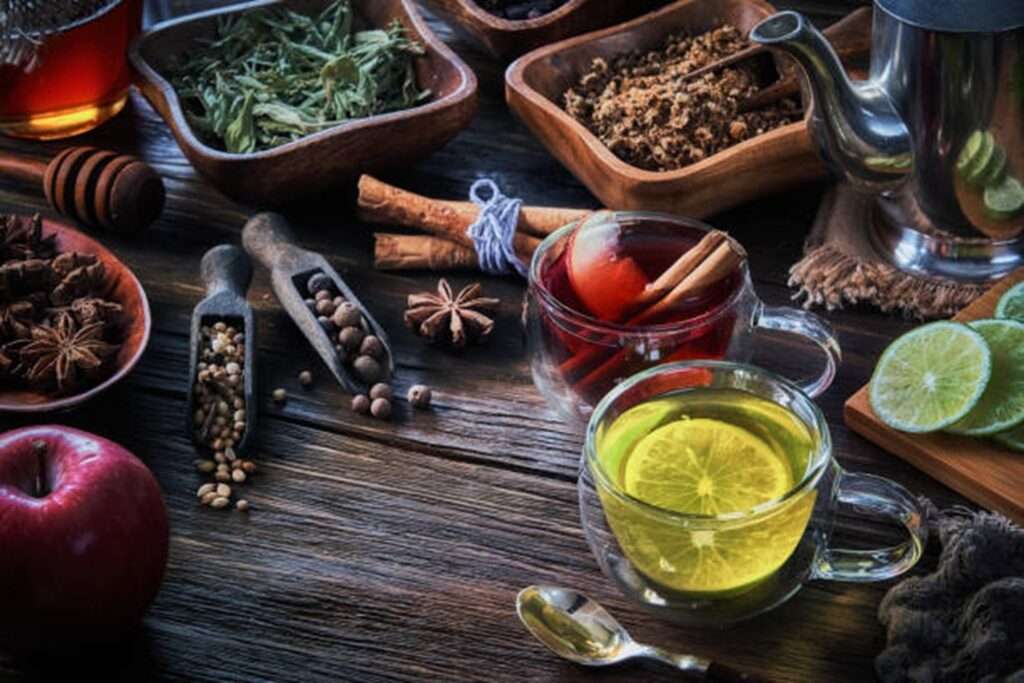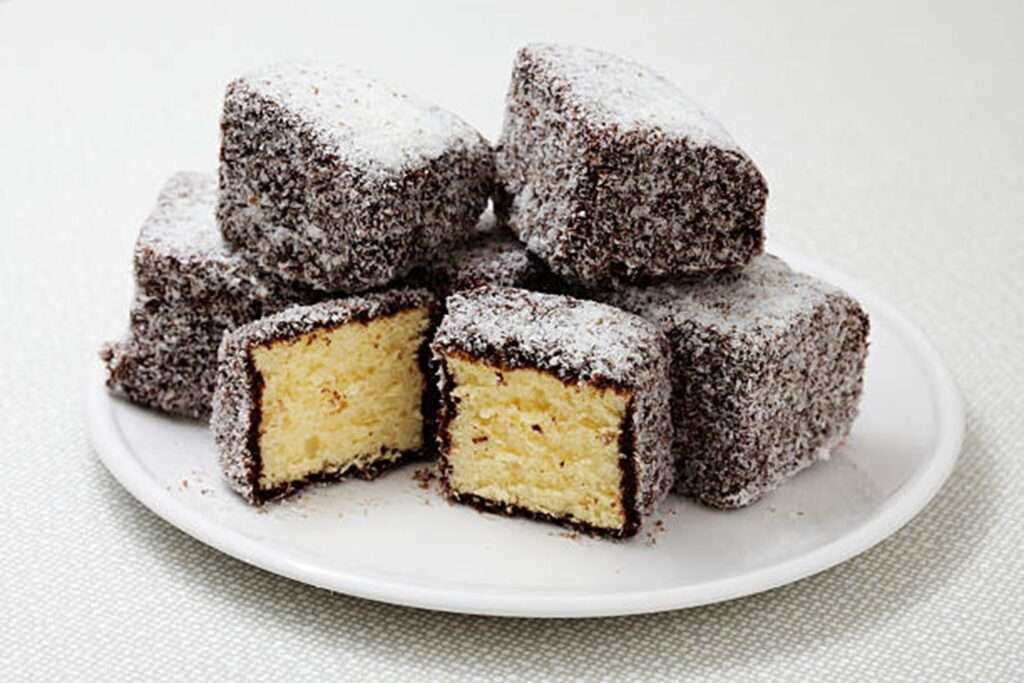A Guide to Herbal Teas
Forget the hustle and bustle for a moment. Picture yourself nestled in a cozy chalet, surrounded by the awe-inspiring beauty of the Swiss Alps. In your hand, a steaming mug filled with a fragrant herbal infusion, its aroma transporting you to a world of serenity.
This, my friends, is the enchantment of Swiss herbal infusions. More than just a hot beverage, these infusions are steeped in tradition, harnessing the power of nature’s bounty to soothe the soul and delight the taste buds.
Today, we’re embarking on a delightful journey into the world of Swiss herbal infusions. We’ll delve into the rich history of these teas nestled amidst the Swiss mountains, explore the unique varieties bursting with flavor and health benefits, and guide you through brewing the perfect cup of herbal goodness at home.
So, grab your favorite mug, get ready to breathe in the fresh mountain air (or at least imagine it!), and let’s explore the world of Swiss herbal infusions – a sip of pure relaxation and a taste of Swiss tradition waiting to be discovered.

HERBAL INFUSIONS
5 Stars 4 Stars 3 Stars 2 Stars 1 Star
No reviews
- Author: Food Yumster
Description
Forget the hustle and bustle for a moment. Picture yourself nestled in a cozy chalet, surrounded by the awe-inspiring beauty of the Swiss Alps. In your hand, a steaming mug filled with a fragrant herbal infusion, its aroma transporting you to a world of serenity.
Ingredients
Elderflower (Holunderblüten): Fresh or dried elderflower blossoms
Water
Honey or sugar (optional)
Alpine Mint (Alpenminze): Fresh or dried alpine mint leaves
Lemon slices (optional)
Linden Blossom (Lindenblüten): Fresh or dried linden blossoms
Lemon balm leaves (optional)
Mountain Thyme (Bergthymian): Fresh or dried mountain thyme
Lemon zest (optional)
Honey or maple syrup (optional)
Swiss Chamomile (Schweizer Kamille): Fresh or dried chamomile flowers
Apple slices (optional)
Alpine Rose (Alpenrose): Fresh or dried alpine rose petals
Rose hips (optional)
Swiss Sage (Schweizer Salbei): Fresh or dried sage leaves
Meadowsweet (Mädesüß): Fresh or dried meadowsweet blossoms
Fresh mint leaves (optional)
St. John’s Wort (Johanniskraut): Fresh or dried St. John’s Wort flowers
Swiss Pine (Schweizer Arve): Fresh or dried Swiss pine needles
Instructions
Herbal infusions are a delightful way to savor the natural flavors and health benefits of Swiss herbs. Here’s a step-by-step guide to preparing these delightful beverages.
Step 1: Gather Your Ingredients
Select fresh or dried herbs native to Switzerland, such as elderflower, alpine mint, linden blossom, mountain thyme, Swiss chamomile, alpine rose, Swiss sage, meadowsweet, St. John’s Wort, or Swiss pine. You can also add complementary ingredients like lemon slices, apple slices, or honey for added flavor.
Step 2: Boil the Water
Bring fresh, filtered water to a boil. Use about one cup of water per serving.
Step 3: Prepare the Herbs
Measure out 1-2 teaspoons of dried herbs or a small handful of fresh herbs per cup of water. Place the herbs into a teapot, infuser, or directly into your cup if you plan to strain them later.
Step 4: Pour the Water
Pour the boiling water over the herbs, ensuring they are fully submerged.
Step 5: Steep
Cover the teapot or cup and let the herbs steep for 5-10 minutes. The steeping time can vary based on the type of herb and your taste preference. Generally, longer steeping results in a stronger flavor.
Step 6: Strain the Herbs
Once the infusion has reached your desired strength, strain out the herbs using a fine mesh strainer or remove the infuser.
Step 7: Sweeten (Optional)
Add sweeteners like honey, sugar, or maple syrup to taste. You can also add lemon juice or slices for a citrusy twist.
Step 8: Serve
Pour the herbal infusion into your favorite mug. If you’ve prepared a larger batch, you can store the remaining infusion in the refrigerator for up to a few days.
Step 9: Enjoy
Sip your herbal infusion slowly, savoring the natural flavors and aromas of the Swiss herbs. Relax and enjoy the soothing effects.
Tips for the Perfect Herbal Infusion
– Experiment with Combinations: Mix different herbs to create unique blends. For example, try combining Swiss chamomile with linden blossom for a calming blend.
– Adjust Steeping Time: If your infusion is too strong or too weak, adjust the steeping time accordingly for the next batch.
– Cold Infusions: For a refreshing summer drink, prepare the infusion as usual, let it cool, and serve it over ice with a slice of lemon or a sprig of mint.
Health benefits of herbal infusions
– Hydration: Herbal infusions are a great way to stay hydrated while enjoying the flavors of nature.
– Caffeine-Free: Most herbal infusions are naturally caffeine-free, making them suitable for any time of the day.
– Nutrient-Rich: They are packed with vitamins, minerals, and antioxidants that contribute to overall health and well-being.
Enjoying a cup of Swiss herbal infusion not only delights your taste buds but also brings a wealth of health benefits, making it a perfect addition to your daily routine.
Swiss herbal infusions provide essential vitamins, minerals, and antioxidants that support overall health. Enjoying a cup of these herbal teas is a simple way to boost your intake of valuable nutrients.
Swiss herbal infusions are more than just a warm, soothing drink – they are a gateway to the rich botanical heritage of Switzerland. From the calming effects of chamomile to the invigorating benefits of alpine mint, each sip offers a taste of nature’s bounty coupled with a wealth of health benefits. Whether you’re looking to relax, boost your immune system, or simply enjoy a flavorful beverage, these herbal infusions are a perfect choice. So, brew a cup, sit back, and let the essence of Swiss herbs bring tranquility and wellness to your day. Cheers to your health and happy sipping!










